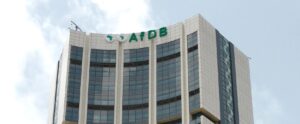
Nghiinomenwa-vali Erastus
The 16 member states of the Southern African Development Community (SADC) have signaled their intention to take over the reign of the African Development Bank (AfDB).
The government provided the region’s intentions in the Cabinet Decisions issued at the 15th (2022) decision-making meeting held in September.
The decision to contest the influential position on the continent was made at the SADC’s ministers of finance meeting that was held in Lilongwe, Malawi, at the end of the first half of 2022.
The government update indicated that the finance ministers’ committee decided for SADC to step up since the current AfDB president, Akinwumi Adesina, will finish his tenure in 2025.
The former Nigerian minister of agriculture and rural development was elected as its 8th president on 28 May 2015, and in 2025, it will be his 10th year at the helm of the bank.
The SADC treasurers have indicated the need for the region to nominate a candidate for the position when the time comes and for Namibia to consider finding a candidate.
“Namibia may wish to identify a potential candidate for possible consideration,” the cabinet decision reads.
The AfDB’s mission is to promote sustainable economic growth and reduce poverty on the continent through the allocation of capital through loans and other means to African economies (governments and state-owned enterprises).
The bank is owned by 54 African countries (regional member countries) and 27 non-African countries (non-regional member countries).
The bank has a portfolio in Namibia, where the government has reached out for funding in education and transport infrastructure, the agricultural sector, and water infrastructure.
As for the water infrastructure, the government is rolling out a National Water Sector Support Programme that is jointly funded by Government, NamWater, the African Development Bank (AfDB) and the KfW Development Bank for more than N$10 billion to achieve secure bulk and rural water supply over the medium to long term.
The AfDB funding in Namibia also includes the country’s National Oil Storage, of which the domestic Development Bank reached out to the African lender for a loan under government guarantee for the construction of the storage.
Cabinet was also informed that the country has ratified the SADC Agreement on Assistance on Tax Matters and that the instrumentation of ratification will be submitted soon.
The SADC Tax Subcommittee has also started with the review of the regional Model of Double Taxation Avoidance Agreements (DTAA).
To date, there are 59 DTAAs in force among SADC Member States.
A DTAA is a tax treaty signed between two or more countries to help taxpayers avoid paying double taxes on the same income.
A DTAA becomes applicable in cases where an individual is a resident of one nation, but earns income in another.
By the time the Cabinet briefs were released, it was indicated that the agreement will be done by September and it will align with other advanced models such as that of the UN and the Organisation of Economic Cooperation and Development.
The Tax Subcommittee in collaboration with the African Union (AU) is also developing a framework for detecting, monitoring, and addressing the threats of illicit trade and financial flows in the region.
Email: erastus@thevillager.com.na









Comments